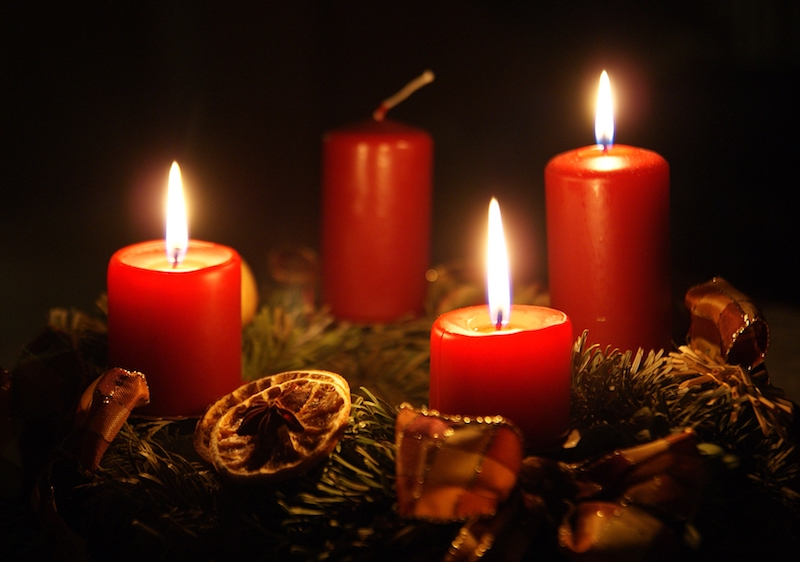Resources for the Beginning of Advent

Advent is upon us, our annual invitation to living with hope and expectation. As we begin this sacred time of waiting and watching, here are some resources to help us in our preparations for Christmas:
- America Magazine offers An (Unconventional) Advent Playlist for those who like to wait until the actual Christmas season to play Christmas music.
- Busted Halo has updated their Advent in 2 Minutes video:
- Dynamic Catholic is once again offering their daily video mediations, The Best Advent Ever.
And if you’re looking for a good source of mediation material for Advent, you might consider Preparing for Christmas: Daily Meditations for Advent by Fr. Richard Rohr. It’s full of deep, thoughtful insights on this important season, like the following mediation from the First Sunday of Advent:
“Come, Lord Jesus,” the Advent mantra, means that all of Christian history has to live out of a kind of deliberate emptiness, a kind of chosen non-fulfillment. Perfect fullness is always to come, and we do not need to demand it now. This keeps the field of life wide open and especially open to grace and to a future created by God rather than ourselves. This is exactly what it means to be “awake,” as the Gospel urges us! We can also use other a words for Advent: aware, alive, attentive, alert, awake are all appropriate! Advent is, above all else, a call to full consciousness and a forewarning about the high price of consciousness.
When we demand satisfaction of one another, when we demand any completion to history on our terms, when we demand that our anxiety be taken away, saying as it were, “Why weren’t you this for me? Why didn’t life do that for me? we are refusing to say, “Come, Lord Jesus.” We are refusing to hold out for the full picture that is always given by God.
“Come, Lord Jesus” is a leap into the kind of freedom and surrender that is rightly called the virtue of hope. The theological virtue of hope is the patient and trustful willingness to live without closure, without resolution, and still be content and even happy because our Satisfaction is now at another level, and our Source is beyond ourselves. We are able to trust that he will come again, just as Jesus has come into our past, into our private dilemmas and into our suffering world. Our Christian past then becomes our Christian prologue, and “Come, Lord Jesus” is not a cry of desperation but an assured shout of cosmic hope.































